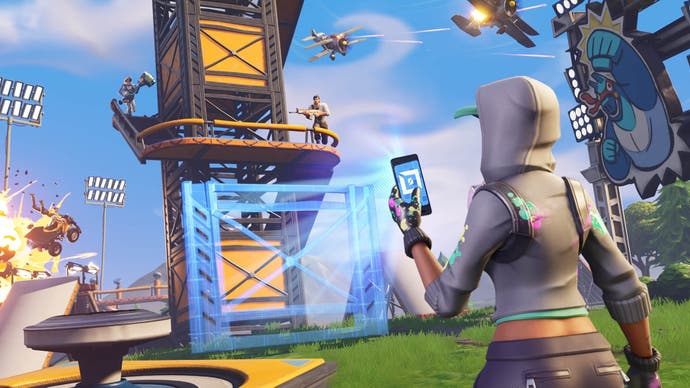New legal challenge accuses Epic of "knowingly" creating the "very, very addictive game", Fortnite
"If we knew it was so addictive it would ruin our child's life, we would never have let them start playing Fortnite."
A Canadian legal firm is preparing a class-action lawsuit against Epic Games, accusing the developer of "knowingly" creating the "very, very addictive game", Fortnite.
"Epic Games, when they created Fortnite, for years and years, hired psychologists - they really dug into the human brain and they really made the effort to make it as addictive as possible," said Alessandra Esposito Chartrand, an attorney with Calex Légal (thanks CBC, Dextero). "They knowingly put on the market a very, very addictive game which was also geared toward youth."
Likening the case to the 2015 class-action suit against tobacco companies that saw the Quebec Superior Court ruling determine tobacco companies didn't do enough to warn their customers about the dangers of smoking, Chartrand believes Epic knew Fortnite was "as addictive as possible" and failed in their duty to warn players of the risk of addiction. Consequently, the legal challenge is "very centred on the duty to inform".
The legal notice - which was filed on behalf of the parents of two minors, aged 10 and 15 - also draws on the recent decision of the World Health Organisation to list gaming disorder as a disease.
"In our case, the two parents that came forward and told [us], 'If we knew it was so addictive it would ruin our child's life, we would never have let them start playing Fortnite or we would have monitored it a lot more closely'," Chartrand added.
To play the game, users must surrender their right to sue the company as part of its terms of use and instead go through individual arbitration, but Chartrand believes the terms of service "don't stand up in court in Quebec because the province's Consumer Protection Act requires companies to clearly disclose risks associated with products or services".
Chartrand would not be drawn on how much her firm seeks in damages and Epic reportedly did not return CBC's request for comment.
Epic Games is also facing a class-action lawsuit following a data breach which exposed personal information from millions of users' accounts. The data breach occurred back in January this year, when hackers found a flaw in Fortnite's login system, allowing them to impersonate players and purchase V-Bucks with the bank information attached to their accounts.








